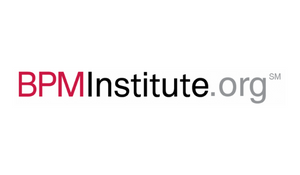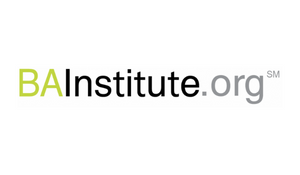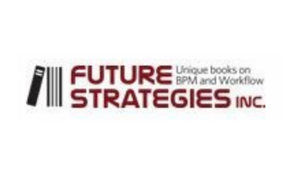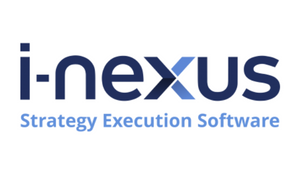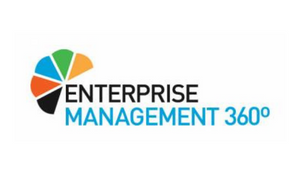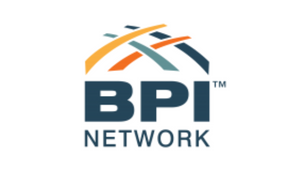

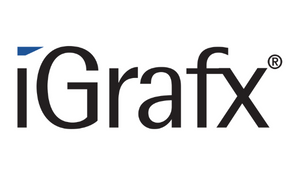

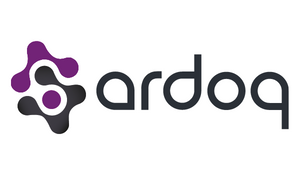
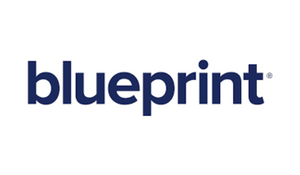
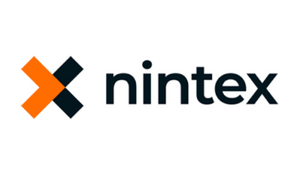
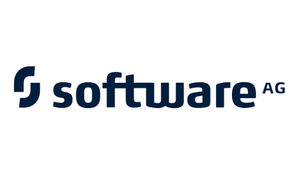

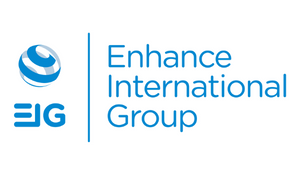
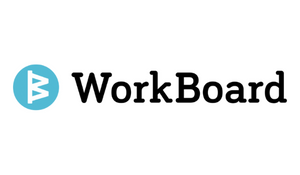
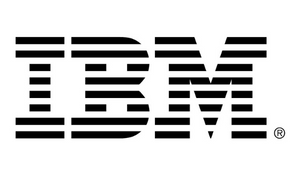
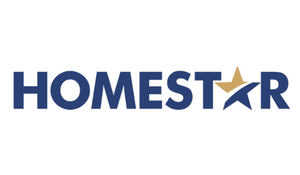

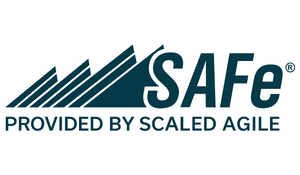
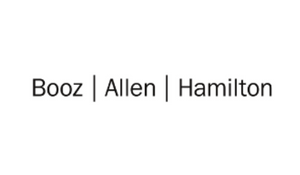
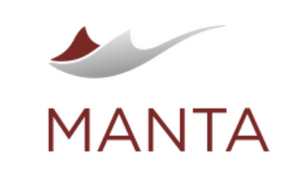
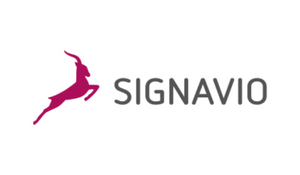
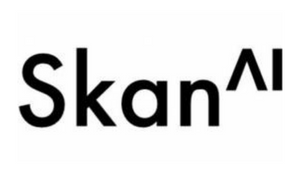

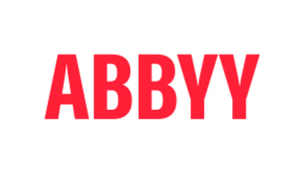

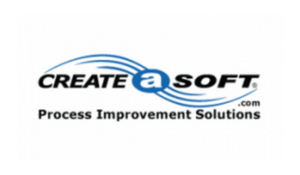

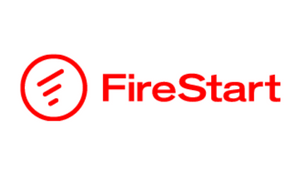


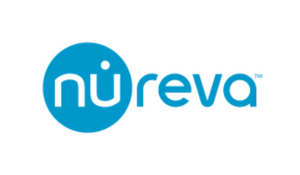
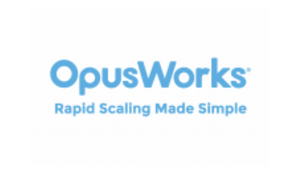
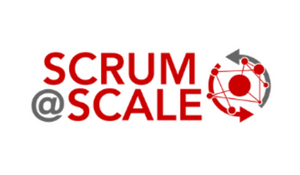
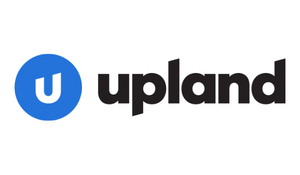
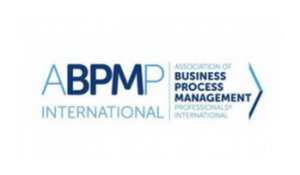
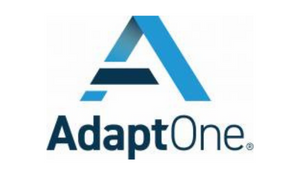
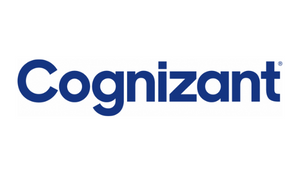
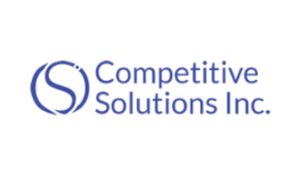
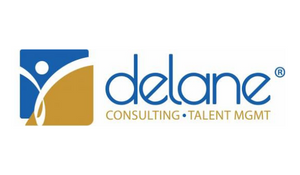

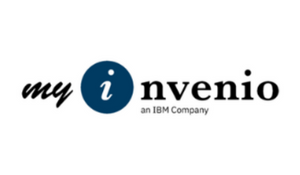
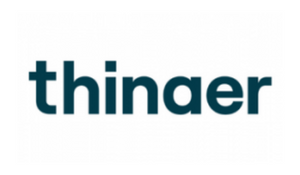
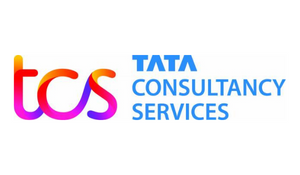
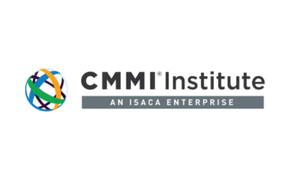
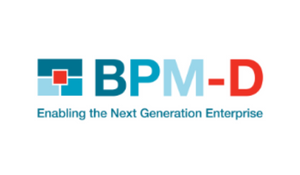

Courtesy of Innovation360 Group's Magnus Penker, below is a transcript of his speaking session on 'DECISION-MAKING IN UNCERTAIN TIMES' to Build a Thriving Enterprise that took place at BTOES IT Infrastructure & Cloud Strategies Virtual Conference.
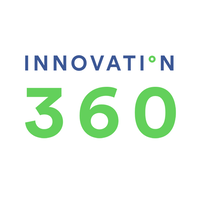

Session Information:
In most enterprises, deployments are occurring in an ad hoc manner, primarily driven by lack of protocol and unapproved decisions by various operators or employees. Some deployments even violate the organization's compliance obligations, such as being deployed in a manner that violates PCI DSS rules.
If you want to ensure that future deployments comply with policy and organizational requirements. In this session, walk through the processes and technologies that will keep Tailwind Trader's deployments in good standing with the help of Azure Blueprints, Azure Policy, Locks and more.
The solution is governance, and making sure you, the developers and IT Pros who are advocating cloud in your organisations understand the management needed for successful adoption is key
Whilst governance does not need tooling per se, Microsoft has a range of great tools in the Azure arsenal to help you.
In this session I’ll talk about the kinds of things that can go wrong and the simple things you can do to avoid them.
Session Transcript:About having Magnus here with us today. Hello, Magnus. Great to have you.
Very much looking forward to your presentation. Let me give you all a bit of background on .... He is the internationally renowned thought leader on innovation, digitization and business transformation and he's serves as the CEO of Innovation 360.
He's a speaker in prestigious forums and advance top ranked international business and design schools and a variety of associations and some of the world's largest and most successful companies.
Mister Banker has published several International Books on innovation. and it's also running the podcast, Play Bold, which I have been a host on and I've been very excited and proud to be part of that. He is writing his book Play Bold and he may talk to us a little bit about that which talks about innovation and a lot of the topics that he's going to discuss on his talk to date. So, Magnus, it's a privilege to have you with us and very much look forward to your presentation.
Thank you.
Rates, an honor to be here, and hello to everybody around North America, and most likely the rest of the world, too.
It's great to be a speaker on this event.
So M What we're going to talk about here is actually it's sad, not just my favorite subject.
Is this actually what's absolutely necessary to get back in the saddle again?
We experience very uncertain times and very turbulent times, then based on research, over the last eight years, before we started, which we did 2016, I spent eight years in everything I owned in the past to invest in building up the lottery database in the world with data around what's driving growth and innovation.
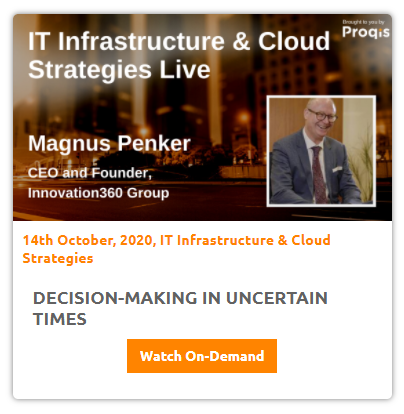 A southerly with that, the post, doctor posted them enough to call it, and, and, and post-college.
A southerly with that, the post, doctor posted them enough to call it, and, and, and post-college.
Well, it's relevant.
So all these efforts as boiled down to a few frameworks and insights that I'm working with on a daily basis, and I'm going to take this opportunity to share with you.
How do you can manage and take control when it's very uncertain? And of course, all of you working with technology and business transformation. Well, you used it.
The difference is that this time, it's accelerated to a level that very few of us were able to foresee.
So M, I would like to start with them.
A quote from a friend of mine, he's a Hollywood screenwriter.
He told me once that Magnus there, don't tell only two stories in the world.
A person goes on a journey, or strange to come to town.
And if you're a guy went waiting in the town to people to intrude on, you know, take control. You're the victim.
So you have to make up your mind.
Are you going to let things happen to you, or you go to be the person that actually going on a journey.
The one that is taking risk and discover and fixings.
This is something you have to make up, your mind about, what's important for you, and to put it in the virus situation.
I lived in there, New York City, with my family until very recently.
We move back axolotl recovered, it was more that we planned for, going back during the summer to get the kids back in Swedish school.
So I picked up the Tweets, March 26, where someone said that, Well, we're going to try to use blood plasma to treat the virus.
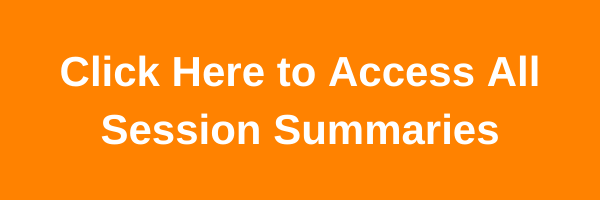 Either device happened to you, or you happened to the virus.
Either device happened to you, or you happened to the virus.
Those folks who are not crazy folks, and I promise you day, most likely broke every single possible compliance rules that are in the state of New York.
The interesting thing is to act hundred years ago, during the Spanish flu, this was exactly what they did.
You can normally find solutions in the past, and you can predict them on the future.
You just have to make up your mind, all, you're the guy in control in the room or not.
So, during the World War two app, the Japanese Army were quite successful.
It was sad, bad situation for the U S and a lot of victims.
And, well, the US ran out of metal.
And back then they could decide if they're ...
to surrender or fix it.
They decided to fix it, and they come up with its advertising all over the US.
Would it asked and encourage Farmers, Holm Wifes businesses For Metals and people started to donate pots pans Then toning form equipment the children ...
metal toys the only two stores in the world.
And this is what's dividing the winner from the one that is not going to win, will take control of the situation.
So, this is the picture I am, was living close to the East River at Manhattan.
I took a selfie. This is a read picture.
This was in April.
I'm the guy on the right-hand side.
So, I'm not that different from the guys from the left hand side here.
If you would walk into a bank like like this, would, would they shoot you?
Yeah, most lucky.
And the ... April 20 20, they would shoot you for, did it look like I did look?
It's, It's amazing.
I actually tried to go into a bank like that and it works, you get 500 bucks in penalty if you didn't have the mask, So, things are changing. You just have to make up your mind and adapt to that.
So, one of the persons that has a tremendous impact on the theory around decision making entrepreneurship, innovation handling uncertainty in general is Joseph Schumpeter.
He lived 100 years ago and he said, innovation is the creative destruction where entrepreneur, combined, existing elements in new ways.
This is interesting.
He implies 100 years ago that everything exists. It's embedded, what would do with it.
It's the same right now.
Everything is, there.
It could be the silly gown silicone underground, The maybe take a billion yet to dig up. Next time is quantum computing or foot tall nick CPUs that I worked with a few years ago that might hit the market in 10, 15 years from now.
So, it's similar to what we do and thinks it's our choice. We have to make up our mind.
We live in a situation not just with a pandemic.
It is global warming, its mass pollution, mass called fixed height, the competition, disrupting startups, digitalization, AI, political change, regulation, deregulation, demographic change.
It's, it's enormous amount of, global key driver impacting our way of living.
And, we need to fix it.
And, the only way is to actually apply innovation. And, the key enabler is innovation management to find ways to create solutions to decision making, in a certain time, It's very linked to innovation management.
So, everybody been talking for an hour around innovation for quite many years.
We created a large database in the world.
We have data from more than 105 countries, And M, less number of organizations, And I can tell you, based on that data, only 10% have the capability to execute. It doesn't matter what they say in keynotes. It doesn't matter what to say that.
Marketing fact sheets, brochures, The reality is, only 10% is actually geared to handle innovation.
That's why discipline is needed, and we're going to focus during this call, on decision making, what you can do.
First, a small definition. So innovation could be small things, we call it, like incremental innovation, or it could be major leap.
That's the radical innovation with new solutions.
And big problem coal, four big solutions.
So we need to understand that to get back, again on track, we'll call for quite radical change but don't be scared.
The interesting thing is that radical innovators and we've proven that in the in the paper that we presented at the I Tripoli in Bangkok, two weeks ago, when we, without a data, we're able to prove that ... innovators are more structured in decision making.
Everybody has the ideas, that's not even the problem.
The problem is, how do I know what to go ahead with?
Radical innovators are much more capable to train the organization in a structured way. It's not about to find the smartest guy from an Ivy League and bring them in. It's not sufficient.
Actually, it could be counter-productive.
It's about to form the right team and the composition of the team, and building the capability of the team to go ahead and present the key findings to be able to make decisions.
In the sand, a research project for I triple E we also discovered five major blockers, hindering us for actually making decisions.
So the first one is?
the siloes.
When you work in silos, ideas, and best practice and way of working, do not spread.
You get stuck.
And information and knowledge gets stuck, and you can't really see the whole picture.
It's effectively hindering you from doing any kind of incites, making up decision, lack of faith in the objectives that you don't really believe in the objectives.
You don't have a higher purpose. You don't really know why you go to work every day. You don't. You don't feel motivated.
You are fear, you fear of failure.
You are afraid of either failure or maybe the flip side of the coin, you are actually afraid of not succeed.
And you have all the issues to deal with uncertainty except that I will give you a few slides.
I will random through fairly quickly.
I will go I'm going to walk you through a few slides about the pandemic to showcase the power of these key findings 2018.
And that if you put enough pressure on the system and the kind of system.
It will self organize and these five things will be fulfilled.
Unfortunately, the pressure that we put on the system, Mother Earth has also created very negative side effects.
But if we had organized our society and organization in advanced, we could tackle the pandemic in a totally different way.
 And all of you accepts and I'm going to show this with data.
And all of you accepts and I'm going to show this with data.
So, bear with me a few minutes and I will give an insight that would jump back to the whole decision making.
So, before the Corvette 19 situation.
In Europe, no one helped italia darkest the first breakout.
And no one have China.
In the US, the federal help was far away.
And in China, that will tell the information they were working in silos in the current situation. Europe is co-ordinate.
It's it's it's slow. But they do that. It's it's amazing to get the dahlia and then the friend should everybody now to collaborate.
That's that's, wow.
And in the US, we see some federal support and in China, to actually inform the world, they start to collaborate. The very close countries start to collaborate very interesting.
So the system is actually adopting, unfortunately, due to the wrong kind of pressure, but still facing objectives in Europe that they really didn't have any frictional scenarios for any kind of situations.
They didn't have any kind of clear objectives. And they had very different perspectives on things.
While, sadly, York start to have a unified response in the US, we couldn't deal with goals on ventilators unmasked and so forth.
And suddenly the precedent invoked the Defense Production Act for producing ventilators That is astonishing, that that is happening. The last time was during the World War II.
In China, they had the brew to look time because they didn't have any information they were acting in Patnaik. They didn't have any object is have an interface and NFC. And suddenly they open up step by step in a very controlled and systematic way that still is working.
So, we moved to have facing objectives and set up a bit.
The higher purpose in Europe, we will only focusing on the Brexit protectionism. And no, no post corona corvid.
It was just a blame game, and suddenly, the idea behind Europe, with EU, is actually to prevent war.
Suddenly, people started talking about the higher purpose, it's unbelievable.
From 20 years of offer, literally throwing, you know, ****, the shuttle literally, sorry for that, France. And the US.
Couldn't decide on and the support to the society. There was no linkage to the higher purpose in the founding father of the nation.
It was just like yet nothing a southerly.
The actually, there is an increased systematic responsibility focusing on mitigating the consequences on the economy.
When I was living in New York, it was fantastic to see.
It was much faster than unfreeze the Sweden the sometimes pointed out as a very good example in handling crisis this.
That was astonishing, well done. And in China, they were just for saving, saving the power for the ruling elite, and suddenly they become a role model using the high porpoise.
And then we have fear, and this is interesting.
In EU, people were absolutely not willing to use, and a kind of non certified, protective equipment. So we have mask, but we're not like they allowed to use them, because they were produced in China, doesn't have the right certificate. It's absolutely ridiculous.
And suddenly, the laws and policies was Look it up, and we came to some sort of sentence and some sort of reasonable way of working in the US. We know what we're willing to stick an account of social interaction and bulk purchase your standard, and the pricing on the consumer goods, when sky-high southerly.
In US we didn't accept that.
We put ... laws against pricing and and forbidding bulk purchase symbolic selling.
And China, they deny the existence in the beginning that will verify it and then suddenly it opened up totally.
And uncertainty, the last of these five components that you need to have in place to really make decisions apps in EU.
We'd have very divergent strategy's suddenly.
We become better in testing and forecasting.
And actually we started too complement to the degree of uncertainty. Even a media we start to talk about uncertainty and not just probability because those two are not the same.
And in U S, there were no goals of testing. Unfortunately, it's still a problem.
Buck, I foresee that will change, it has to change, to deal with uncertainty and in China, lack of knowledge to have to now be the first on the curve, but now they have extensive testing tracking. So, so, this does.
So, let's have a look at some data.
The cumulative confirmed covert 19 deaths between the US and two other countries. As you can see, it's a big gap.
And it's Sam, not necessarily that it has to look like that. There isn't a big number of other countries suffering in a very similar way.
I want to stress that, but what I want to make it point here is that, it's, as you can see on the gray coetzee, quite many that are suffering as the U S. But my point here is that, how come the two countries are not suffering at all basically.
And they didn't have the core of it.
It's not the North Koreans where they don't have covered because they're locked down if it's not true, this is actually Western countries that, that are collaborative working across the board.
I can tell you why.
We did an analysis already, way back.
It was actually the first one was actually in the mid april, and we could see that the aspiration for radical innovation in Singapore, South Korea, compared with the US.
It's quite, it's quite big difference, And the capabilities correlated to radical innovation, So we did a correlation analysis between what you need to have in place to fulfill the aspiration of radical innovation.
And as you can see on this graph, South Korea Singapore to have the capability and aspiration US have some aspiration, the capability is not really there.
And, I would say, just to be fair, it goes through several European countries as well.
Uh, but my point here is that, when we started complaints, and we aggregate them on country level, or regional level, we can clearly see that there is a correlation between handling a totally new situation, and the aspiration for radical innovation, and the capability for radical innovation.
And the radical innovate, statistically, are also.
And this is interesting, increment.
But the incremental innovators are statistically not radical.
Why?
Well, if you can be radical, you better know what you're doing, and most likely daniels' able to handle the continuous improvements.
.png?width=742&name=Screenshot%20(4).png) And the problem is not the lack of ideas. It's actually how about, to getting where, Why, what?
And the problem is not the lack of ideas. It's actually how about, to getting where, Why, what?
And now it's time to act and take control and mitigate uncertainty, to collaborate, and cluster, experiment, and learn, and adapt to the new normal.
And I first created this in an assignment I had for a, for a government funded assignment.
Just off the record break broke out.
And I just made one slight change on this one. It's quite stable.
We can see how the supply chain is rebuilt, how we have an emergent pocket of protectionism electrification and optimization boost, new, superclusters, new way of working, and revised health care policies. And all of these things is actually things that we could see in the past. It's not accelerating pretty fast.
That's also why this conference is really important.
Because you need to take control.
But this is not just about running transformation program and having new technology. It's about the mindset, about the culture, about the leadership and about the capability, if you don't have them in place.
Nothing will help.
And the best advice I can give it to you is to work in horizons, This is a very well-known model.
It's satya's old, and it's just not ....
So it's, it's 20 of some sort of at it combined here and now in the first horizon.
That way you work with unknown, while the soda rice needs to tone down known.
Where you try to learn the return is insights while the return in horizon one is cash.
And Horizon two, that is, a just sent a Porter is where you have written of data.
But if you believe for a second that, you can go matches every day, if you think that you can compete in soccer, wearing, tennis, or in hockey, as thing that you will win, you're wrong.
Sports, people that are the best thing, the rules. They plan for, the Olympics for four years.
They train, train, train, train, practice strain.
And then I do a few matches.
I see this in every assignments I'm involved in. If you try to do matches every day you lose out.
You need to train and you need to train your organization being able to have two thoughts in their head at the same time.
Here are now cash, but also the tomorrows cash in in Horizon two. And how do you get that that idea by learning about horizon sweep.
There is a very large study that is showing that if you work in this way, you would actually earn 22% more, and you will grow much, much more than your competitors do.
In average, it's actually 12% higher gross and 22% higher profit, and you need to have the culture and the structure and the acting in place.
Now, tangible advice, if you want to work in this tree arises.
Most likely, I guess, the most of the audience is working for a very large organization and if you do statistically you have the state skated Bolden or something equivalent to the States get the process.
You might also work with Agile methods or scram, or even as ...
framework: OK, here's the neos: All of that is brilliant for the first horizon, but none of that is working for a second or ....
It's actually very efficiently hindering you from doing anything that is not known because how do you slice up something that doesn't exist? How do you create the sprint of something that doesn't exist?
How can you use design thinking? How can you use agile methods? How can you state skated on something that doesn't exist? You can't?
When you deal with a new situation, you have to deal with two units uncertainty and infinity. It's an infinite number of combination and a total uncertainty.
Those two humans can't be divided, which means you can't use a ..., UCSF.
You can't use the stage gate model, I'm Tim, you defined the problem and reduce the level of uncertainty.
So what you need to do is you need to add, discover, face and you need to find pipeline feeders to feed in seems to create and clustering big ideas based on very many ideations, collecting of data.
And a fetus could be it's endless everything from, from cameras to violence and pattern recognition to interviews, too ethnographic studies to ideation Hackathons.
 It's a good number of way of doing that, and then you can clustering them into clusters. And then you can ask yourself how sort Dennis, and if it's very, very uncertain. It's an eighth Street project list or to explore event, and you do soft experiments. Then you move the uncertainty into Medium, the second horizon, and then you can do prototyping and piloting. And both of these stages need to have a clear hypothesis that you can accept all reactor.
It's a good number of way of doing that, and then you can clustering them into clusters. And then you can ask yourself how sort Dennis, and if it's very, very uncertain. It's an eighth Street project list or to explore event, and you do soft experiments. Then you move the uncertainty into Medium, the second horizon, and then you can do prototyping and piloting. And both of these stages need to have a clear hypothesis that you can accept all reactor.
When you accepted, you'll find the go-ahead otherwise reacted or urine find it. And you iterate until you can reduce the level of uncertainty.
Reaching the point of force arise then you can feed it in directly into the State skated process or the Angel massoud or whatever you want at.
When you work with piloting and prototyping, you deal with the second horizon, what you need to do, near field and market testing in tears until you actually can prove your case, and then you can present it.
So when you go from accelerate to institutionalize, that's where you have the shark tank.
But if you believe for a second. And I've seen it so many times with, with them.
So I had the pleasure to work with several of the largest corporations in the world. And it's a very popular sport to have this architects.
The problem is, they don't know how to make decisions, because they don't have the information, because no one gave them the information, which means they have to rely on old assumptions.
And in turbulent times, that will fool you doesn't matter how smart you are.
It's actually relevant. It could even be hindering you, because you might even fool yourself with extremely sufficient and capable and extensive reasoning. That sounds very bulletproof.
But you might miss out because you have lack of certain insects that you get in the experimentation, prototyping, and pilot.
So this is actually how you can create a model that could be added into basically, any kind of process that you already have, and this will shorten hold your breath now.
It will, in average, in our products.
In average, We shorten the new product development time with 30%, 30%.
So, from that, yeah, the highest speed to market, you tied up less working capital.
And that way, you can outcompete your competitors, and also, in this case, that we are right now, getting back in the setup.
So if you do this in the right way, it's enormous possibilities.
And we've done it many way many, many times in large and mid-sized corporations.
And the average is sortable sounds.
Salt To be able to do this, It's not sufficient with just adding this. I think everything is good and fine, you will set, you, need to work with the capabilities and the leadership and the culture.
Otherwise, this model will not be executed.
What do you need to do? you need to move yourself. This is a very nice model from Newark, Boston in 19 70. You need to move yourself an unconscious, which is a very happy stage.
To be consciously competent, that's a very annoying stage.
To be conscious competence, what are you actually annoying for everybody else? because you're running around and tell people what to do?
And then you move yourself to the master level to be unconscious competence.
So you can assess your where you are actually developed and published.
You can find the books on Amazon, and also in Play Ball, that will be launched in, in January. And you can also find the podcast, Play Ball, its Innovation 360 dot com slash play ball.
It's free, just sign up for it, or Google Play Bould, so you will find it.
So, the idea here is that bye actually walking through the current mm sinking, the last hundred years, We created a model.
I started to populate that with data, and created the largest database on the planet, within it, with data around growth, and innovation, and transformation around the why, What, and how questions use that to collect data and draw conclusions based on that. The correlation analysis between aspiration and ability and one part of the ability, it should capabilities.
Another part is your process capital, and the persona, and the culture, and the leadership.
So, what we learned, and I'm going to share that with you, is a few things, In the first, the ice and the core, you have to explicit, and you have to use incremental innovation.
And you need to have the capability of setting goals and execute on them.
Now, you might think everybody has yet, in theory, but we see when we assess that a lot of companies are pretty poor in that, which actually creating and total traffic jams said, I don't have time for a second Minnesota rising.
And that will kill them, especially now, when you're going back of the post coven.
Understand the new market and increment the technology shift.
Of course, in the second ..., expand, look at Ed yes Tendencies, things that is very close to what you do.
Build the capability of the challenge and grow the new business at focusing on understanding user and related technology in here, anthropologie and ethnographic methods.
I'm a beatable, because people don't know they don't really know what they want.
You have to absorb and do experiments.
In the southern horizon, it's about finding new options, and mapping the future, and you need the capability of building scenarios, and you need the capability of co creating, and gain new insights, and feed it into the second, and down into the short story, into the first right.
three cornerstone of decision making for growth under high very high uncertainty is to have a strategy. And that strategy has to be aligned, of course, with a long term goals. But it also has to be aligned with your purpose. You need to have a strong purpose that is articulated in innovation emission. But just some made up corporate bullshit vision or mission Sorry, that will not do.
 And most, or, I'm sorry to say that, but, but it's very, few have a higher purpose. And they weren't having that the actual Excel.
And most, or, I'm sorry to say that, but, but it's very, few have a higher purpose. And they weren't having that the actual Excel.
And they're getting back into sell faster.
And build on what you're good at your strong capabilities, and explore and identify opportunities as part of your daily work, and build new capabilities. And the portfolio part is about risk balance.
And now, the interesting thing, if you do what you did yesterday, that is the highest risk you can take.
It's a myth.
That innovation is high risk, it's low risk because if you do what you did yesterday, now what a pandemic I think that there's not one single person on the planet that would have degree that do what I did before to panic. A pandemic is not a really good idea.
I need to rethink at least has been around for thousands of years And you need to align this balanced portfolio with project in a different horizons. Would you strategy for innovation support in the corporate strategy?
Then you have the execution part.
But governance process, an organization, the right model, the right operational model, and you have to build a culture, and all of this is actually possible to assess, and you can do that.
It's, It's fantastic to see how much things you can get out, and in just a few race. You can create the map and you can close the gap and you can go for what you really want to go. But, again, if you've tried to compete every day, you will lose, you need to do as a sportsman as the best athletes on the planet.
You need to have training time and competing time.
And all these things go very nicely together.
The external outlook, that what I'm talking about, the 360 assessment, was strengths and weaknesses that you can do.
The division purpose and mission, the copper strategy, the goal for innovation, goes into strategic initiatives. They feed it into the engine.
We have the portfolio and you have the innovation management system.
This way, you can take control and make decisions and create the risk mitigated portfolio and stick around for quite some time, but you have to be bold and you have to play bold.
That's essential.
So look out for a new book in January and in the meantime, you can go to innovation 360 dot com slash play bold and sign up for a free web cost and podcasts.
So it was really great too to be with you and to have this fantastic possibility.
I'm cool, I'm quite sure that will be a good number of questions which you actually have time for right now.
There are Rafik, Terrific Magnus, very, very well. I will keep monitoring the questions coming in here. Please continue to submit your question to Magnus and I will relate those to him as well as as they become available. Magnus, thank you for a very comprehensive view of innovation. I think innovation is the one of those themes that that has been mystified. And there are a lot of being people who have opinions about it. But they don't really understand it, Or they have not lived through it, and then you have such depth of experience, which we, which is really unique and very valuable to our audience. So on that Some of the questions that have come up, I would start with some of the blockers that you've talked about on the obstacles and challenges related to innovation. And you talked about silos, and you talk about several of them. I'm curious as to what you find to be the biggest blocker as a first question and then I have a follow up question to that.
Us say and I'm, I'm always a little bit of her troublemakers. I will give you two blockers.
That the two really main blockers statistically is lack of higher purpose, which is directed the motivating people to go the extra mile and the second one is fear of failure.
And if you don't fear of failure failure, fear of not succeeding, So, you got your job to do what you can to stick around. But, you don't really understand why and you're not motivated.
And that's not how you get things done with or without this kind of extraordinary oppressively living under right now.
That's very good. My, my follow up question, I was actually on that, on how to deal with this fear of failure and organizations, But, I'm going to switch a little bit and ask you about purpose. You, and I have been around for some time, and you go back a few decades, and talking about purpose wasn't a thing, right?
It was like, you know, it's kind of a soft thing to be talking about purpose, and we both understand how important it is for innovation to accelerate an organization that you have a clear purpose.
My question to you is that, why has change in society? Where purpose has become more important now, at least seems more important, now, than it used to be.
That's, I like that question, I didn't see that coming, but.
There was, I don't remember if it was a decade ago, maybe 12, certain years ago, There was a noble price handed out for for the theory that when you come up with an economic model, it will stop to be applicable immediately. Why? Because everybody apply it.
And we have come to a point in society with all these connections and all this knowledge.
So, everybody's fighting with the same means, if they don't go to send my MBA schools, at least, the MBA schools they go to is inspired by the ... schools.
And suddenly, everything is commoditized and it reach an equilibrium.
So, what is left done?
Human beings, You and me, and all of a few other folks, less shinbone, that's what's left.
Therefore, we need to motivate that.
That's the only way to compete today, actually, and I think that's one major reason.
Then there isn't like a long term, I think driver that is more long term, it's the new generation sets.
It's actually much more critical, and if we can't really fool them, we're giving them, like, flip a game in the office, or a share where you can see it upside down in the roof and feel cool.
All this kind of bullshit that death, we bribed, ..., that, that, that is not, that it's not working anymore.
And I think that these actually see the shift also among very young people.
And of course a good number of the Milan they'll send me.
There's not like a hot line, but there is one generation, what people felt that that was pretty cool, and I mean it is cool, I'm not saying that, but it's not solving any problem.
So I think that we see an underlining change in the society combined with the commoditization.
And that way, it's all advancing lifts.
To motivate people and to give them a higher purpose and to make them secure, to go to work and do the best, to the ability without getting fired or patronize.
So I think these two things goes very well together, actually. And I think it's a shift in attitude in this society combined with the commoditization that we see.
That's a fascinating answer, I really appreciate that. The, especially, the first portion of your answer is really interesting, though, that insight into how it came about about the commoditization of so much that adds economic value. in a very great insight. Appreciate all of that, I follow up to, that there are lots of questions and commentary around this theme of dealing with the fear of failure and organizations like you. And I know very well, the fear of failure is a human, is a basic human instinct. And so, other than, just talk about the fear of failure. We all understand that. That's really exists. What have you found to be the most effective ways of working with organizations to systematically combat and the lower this, the fear of failure?
So, I can share a story from a true story from Malaysia, I worked for a very large oil and gas company. You just Google it and you'll find it. I'm happy to talk about it.
They are fine with it, too.
So, they had quite a big number of people that were very afraid of failing and a lot of PHDs, we did a job with them where we assessed the whole organization, literally.
And then we were very worried that people are going to lie us right up in the face.
What we did, we spent quite much time to create the corporate narrative, require, we spend much time with a higher purpose. And we connected people to why they go to work every day.
And at that time, I started the first workshop with saying, guys, I know that, that the government is looking upon you as the cash cow because the government is owning this company, right?
And, well, it's not the bad thing, but you have to understand that the other day you elected your boss.
And I looked at the, yesterday, it because you, it was election, and you choose the prime minister That is running the country, and the prime minister is the founding father of your company. And he's calling the CEO to make things happen to good, makes good things from Malaysia. your report or something big. You are a part of your kids' future and your grandkids future.
.png?width=742&name=Screenshot%20(4).png) You have to understand that as you selected your boss, you selected your face.
You have to understand that as you selected your boss, you selected your face.
You're part of it, and live up to that.
And, actually, this intro together with creating a cup with narrative a story actually flew in a Hollywood team, as well.
That's another story, but we did two to really iron out the story.
We created movie posters that we literally wallpaper, the whole Patrolled asked, How would that?
That way, we got people to feel, OK, let's give it a shot in a very, very tough environment, where people normally not say anything.
It's very Hierarchical, and people are very afraid, And they'll basically employed a lifetime, So, why should they care? And if they do care, it might get fired.
So, so, but we changed that together, and it's, it's a great company, by the way.
So I think that storytelling leakey to higher purpose.
It's important to involve people, It's important. This is not soft, thinks this is hard things, because at the end of the day, all these folks is creating the value for the shareholders.
Absolutely, Absolutely. We have a question here from Anna Martinis. She first says, Great presentation. Thank you very much. And how do you motivate individuals in a paper focused organization to look at new alternatives? And I'm doing my best to show the teams about software solutions and advice. So it seems like her contacts is that she's an organization that's still very paper handling heavy, and the world of digital transformations. She's probably find it difficult to migrate people to a digital world and advice of guiding people in those transformations.
That's an interesting question.
So, two things that I normally do when I meet resistance is to act, depending on where you are in the world, But let's assume that we are Nilson, America.
Every Friday, I, I encouraged the managed to ask the team, what did you see on your way to the office. I mean, now, we all know to the office about soon, again, will be at the office, and you can post the same question.
So this day, this morning, what did you see that that was like weird?
And if you do that, and you make it back to a ritual where you try to find things and disgust them, you will discover that suddenly the organization is thought to act as an anthropologist and you will find new patterns. You will unrevealed behavior that that you couldn't see before, that is one thing that I use.
Then, when we talk about the situation where people might be afraid of losing their job, because everything is paper based, then you have to address the fear.
And you have to maybe identify way of engaging with people so they feel that they can be a part of the solution.
I seem to get to work with the curiosity, to work with you kind of solution and instill that by small, small baby steps and do it with involving people to make them a part of the solution.
It is. It is one way of tackling it. It's not easy.
This is one way of tackling it.
That's excellent. That's excellent magnets. Very, very good insights. Listen, we are out of time today and there's some additional questions that we didn't get a chance to get to. So my question to you is that, that was a little bit about play Bold. And tell us a little bit about what is the best way of getting in touch and following your work.
Thank you. So you can go to pinker dot com, P N K R dot com. That's, that's my personal website or innovation for six dot com.
And you will find the podcast and please sign up for the podcast this, distributed to Spotify and Apple, or big platforms. This is a product that I'm running to actually influence.
I strongly believe in moving in the letter that we talked about and I am involving a lot of very interesting speakers, like lecture, see here.
The brain of the year, 98, the CTO of NASA, actually, I just interviewed on a day, space designer.
She designed the first space on the underwear, and then the client was ..., so it's a, it's very interesting, multi cultural and intersections.
So I run this to make an impact, and you can use this podcast to learn and get inspired, but also send it out in your co-operation.
Because you need to work with Jaco Bracey, you need to be a maven.
You need to actually enlightening people, and this is a tool that is free.
Just use it and spread it. And you can also reach me through my personal website, pinker dot com and send me message.
And you can invite guests if you have some ... relevant or just give a comment.
So I do just to move.
A big blocker that is about, No, we can't do things differently because we need to move that blocher together.
So that that is in tension with the play ball, podcasts, Mango's banker, what an honor to have you here with us, sharing your wisdom from Sweden to our global audience. Real pleasure to have you here, Thank you so much for taking the time to talk to us today.
Thank you, Say, take care, bye-bye.
Bye bye, ladies and gentlemen. That was Magnus Banker, global innovation leader directly from Sweden. And the very honored to have him with us. And that, this concludes our session for today. I'd like to give you a preview of what's coming up tomorrow. So, tomorrow, it will be the last day of IT infrastructure, and crop cloud strategy strategy live. So, we're going to start the day with a look at African businesses, and they are our approach to IT and cloud based technologies. So, we're going to have the head of the IT infrastructure infrastructure for is Mart, which is a company based in Africa, and, and we will have after that. We as a Tar A leader as Caesar's Interfacing Entertainment, a large entertainment corporation based in Las Vegas, as you probably know. And he's gonna talk to you about the view from the C suite, and what are the key success factors for effective digital transformation?
From an executive perspective, And this is something that a lot of people don't have access to a lot of a lot. A lot of presenters, a lot of professionals, they are working with lower levels in the organization. Area sits with the C suite, and he's going to present their view from the C suite, which is quite a bit different from the folks who are actually doing, doing, doing the Plant, the strategy, and planning, sometimes, for further organizations when it comes to IT infrastructure and Cloud Strategist. So what does that look like from the C suite, and how can we connect better with the C suite and their priorities follow. Follow following the presentation From Reyes. We're going to have the Senior Director for SCP on Artificial Intelligence, Raoul. ... is someone who I haven't revealed before, a key AI leader at ASAP tremendous wealth of insight and information about advanced technologies.
And he's going to be talking to us directly from India tomorrow and about what's going on with respect to the challenges in realizing AI, use cases for enterprise And the way forward, he's going to tell us what's going well, what's not going so well And what we should be excited about in terms of real organizational impact and customer impact, with respect to artificial intelligence. And then we're gonna wrap up the day tomorrow with the head of digital transformation, of digital automation I should say and transformation as well from MetLife and that's eon O'Reilly. And Igor Riley is going to talk about introducing the digital workforce of the future. He's going to talk about digital automation readiness, the key principles for successful automated automation change, which is a topic the anode. The NMR changes, had just asked about addressing the changing nature of work that we're all experiencing. Not only pre covidien a force accentuated by the ... pandemic and then the Human and Digital worker collaboration how we're going to make that work.
And, and that that's they tomorrow, I'm excited about that. If you have additional questions, if you want to make a comment just like and show your support of our presenters, please go to the LinkedIn connection either. My name's Josie Paris, and you see a posting for this conference, Please make a comment there, the speakers. I appreciate everybody likes to know that you're getting good value from, from the conference. And also if you have questions, you can ask questions on that link as well, and in that posting. And we'll have answers provided you there, or will send the messages via LinkedIn messaging, depending on the confidentiality nature of the question. And answer. But go ahead and use the resource. It's a way of Continue the conversation, after the sessions are done.
So, I'm grateful again to spend the day with you. I hope you have a wonderful rest of your day, and we'll see you tomorrow. Have a great day!

-Oct-12-2020-08-08-00-44-AM.jpg?width=200&name=more%20(2)-Oct-12-2020-08-08-00-44-AM.jpg) Magnus Penker,
Magnus Penker,
CEO and Founder,
Innovation360 Group.
Magnus Penker is an internationally-renowned thought leader on innovation, sustainability, and business transformation. He is a speaker in prestigious global forums and events, such as – The Global Peter Drucker Forum, top-ranked international business and design schools, a variety of associations, and some of the world’s largest companies. Mr. Penker is currently writing Play Bold and a 5 Volume Series on Business Innovation titled The Complete Guide to Business Innovation and is contributing as an editor at the International Journal of Innovation Science.
As a result of these achievements he has been honored with the Business Worldwide Magazine award as the ‘Most Innovative CEO Sweden 2016’ and appointed as a Global Top 100 CEO by CEO Monthly year 2018. Additionally, he has launched 10 start-ups as well as acquired, turned around, and sold +30 SMEs all over Europe.
Through his best-selling American books on digitization and IT engineering and his more than 20 years of experience as a management consultant and business leader, Mr. Penker inspires leaders to find a new way of thinking and organizing to stay on top.Mr. Penker is driven by the recognition that in these turbulent times, we must understand what we are really good at and determine how we can use those capabilities and competencies to create advantages in a globalized market with endless possibilities. The global map is being redrawn at speeds we have not seen before, and historically low interest rates are attracting capital to global digital-risk projects that will further strengthen this movement.Mr. Penker has a B.Sc. in Computer Science (CTH, Sweden) and an MBA from the Henley Business School, England.
For the past 10 years, he has used his practical and theoretical insights to develop InnoSurvey®, a leading methodology and global innovation database which is used to analyze and to provide advice to companies, business leaders, and scientists around the world. Today, Mr. Penker is the CEO and Founder of the Innovation360 Group, which is headquartered in Stockholm, Sweden, and in New York, USA.

View our schedule of industry leading free to attend virtual conferences. Each a premier gathering of industry thought leaders and experts sharing key solutions to current challenges.
View Schedule of EventsWelcome to BTOES Insights, the content portal for Business Transformation & Operational Excellence opinions, reports & news.
-------------------------------------------------------
Search for anything
Insights from the most progressive thought leaders delivered to your inbox.
Insights from the world's foremost thought leaders delivered to your inbox.
Being a hero is all about creating value for others. Please invite up to 5 people in your network to attend this premier virtual conference, and they will receive an invitation to attend.
If it’s easier for you, please enter your email address below, and click the button, and we will send you the invitation email that you can forward to relevant people in your network.
View our schedule of industry leading free to attend virtual conferences. Each a premier gathering of industry thought leaders and experts sharing key solutions to current challenges.
View Schedule of EventsWatch On-Demand Recording - Access all sessions from progressive thought leaders free of charge from our industry leading virtual conferences.
Watch On-Demand Recordings For FreeDelivered by the industry's most progressive thought leaders from the world's top brands. Start learning today!
View All Courses NowThe premier Business Transformation & Operational Excellence Conference. Watch sessions on-demand for free. Use code: BFH1120
Watch On-DemandInsights from the most progressive thought leaders delivered to your inbox.
Insights from the world's foremost thought leaders delivered to your inbox.
Being a hero is all about creating value for others. Please invite up to 5 people in your network to also access our newsletter. They will receive an invitation and an option to subscribe.
If it’s easier for you, please enter your email address below, and click the button, and we will send you the invitation email that you can forward to relevant people in your network.
Courtesy of Nintex Pty's Paul Hsu, below is a transcript of his speaking session on 'Improve employee productivity during and post-COVID by ...
Read this article about HP, Best Achievement in Operational Excellence to deliver Digital Transformation, selected by the independent judging panel, ...
Read this article about BMO Financial Group, one of our finalists, in the category Best Achievement in Operational Excellence to deliver Digital ...
Read this article about Cisco, one of our finalists, in the category Best Achievement of Operational Excellence in Internet, Education, Media & ...


